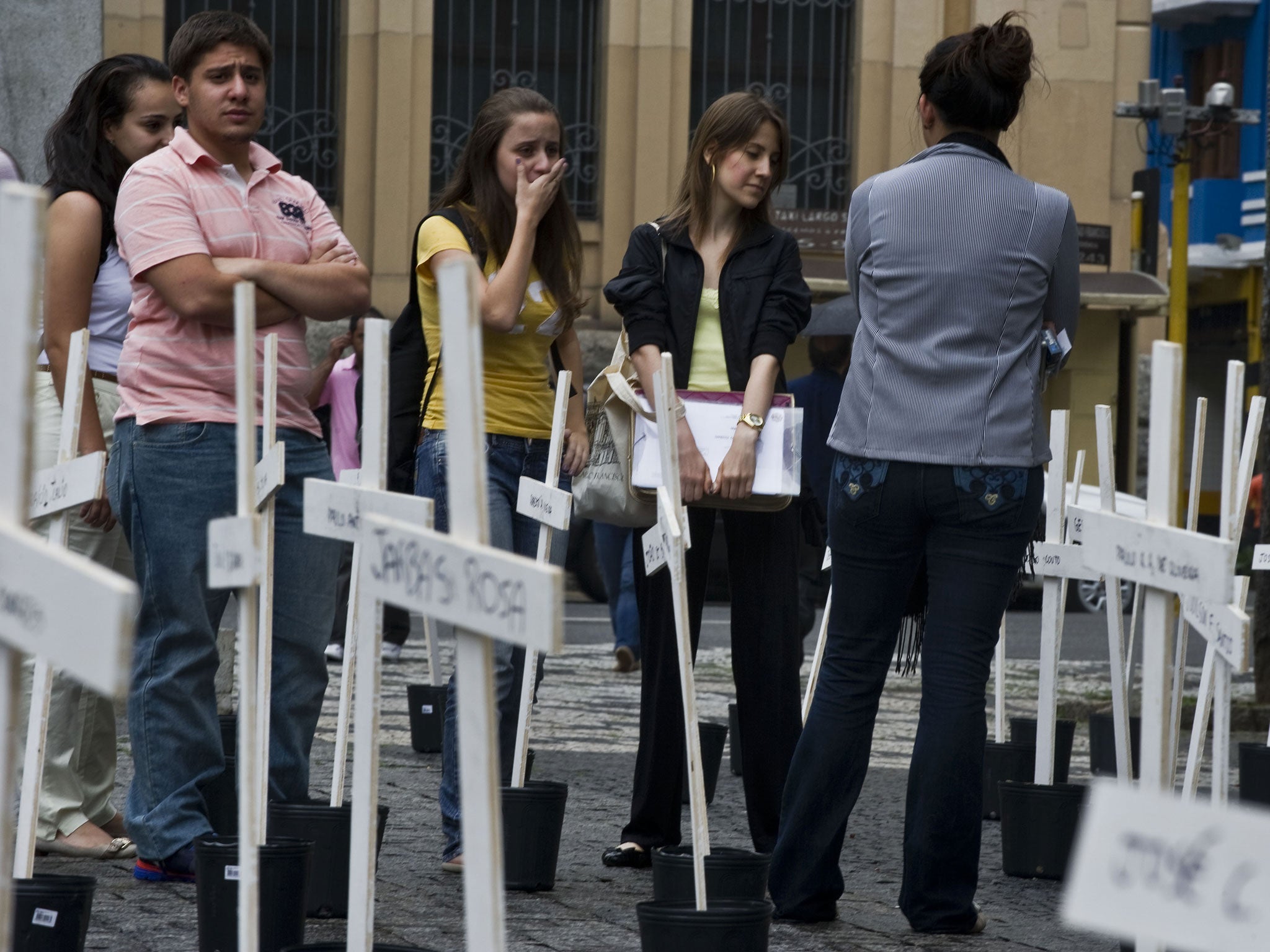Brazilian police face trial over prison 'executions' in 1992's Carandiru massacre

More than 20 years after police in Sao Paulo put down a jail riot by allegedly executing more than 100 prisoners, 26 officers have gone on trial accused of murder.
They are the first rank-and-file officers to face prosecution for the massacre at Carandiru prison – then one of the largest and most notorious prisons in South America – in October 1992.
After entering the jail to put down a fight between rival gangs, prosecutors say dozens of Brazil’s Military Police officers went from cell to cell killing 102 prisoners with handguns, shotguns and machine-guns, often at point-blank range.
No police died in the operation, which is said to have been over within 30 minutes. Another nine prisoners died from knife wounds believed to have been inflicted by fellow inmates.
Seventy-nine serving and former Military Police officers are expected to face charges in four separate trials. The 26 indicted yesterday are accused of killing 15 inmates. If convicted, they face prison sentences of between 12 and 30 years.
In 2001, the officer who led the operation, Colonel Ubiratan Guimaraes, was sentenced to 632 years in prison for his role, but he was acquitted on appeal in 2006. Months later he was murdered with a shot to the stomach at his apartment in an upmarket suburb of Sao Paulo.
His death was one of hundreds in recent years attributed to an escalating war between prison gangs, who are often accused of directing murders outside of jails, and Sao Paulo’s police officers, who are similarly accused of forming militias to retaliate for the killings.
While disorder is not unusual in Brazil’s prisons (human rights organisations often cite examples of jails where the guards are only nominally in charge) the scale of the massacre shocked Brazilians. And even in a country notorious for its bureaucracy, the slow progress of the cases has frustrated many.
Carandiru was closed in 2002, soon after another uprising. About 170,000 people are believed to have been incarcerated there during its 46 years of use.
Join our commenting forum
Join thought-provoking conversations, follow other Independent readers and see their replies
Comments